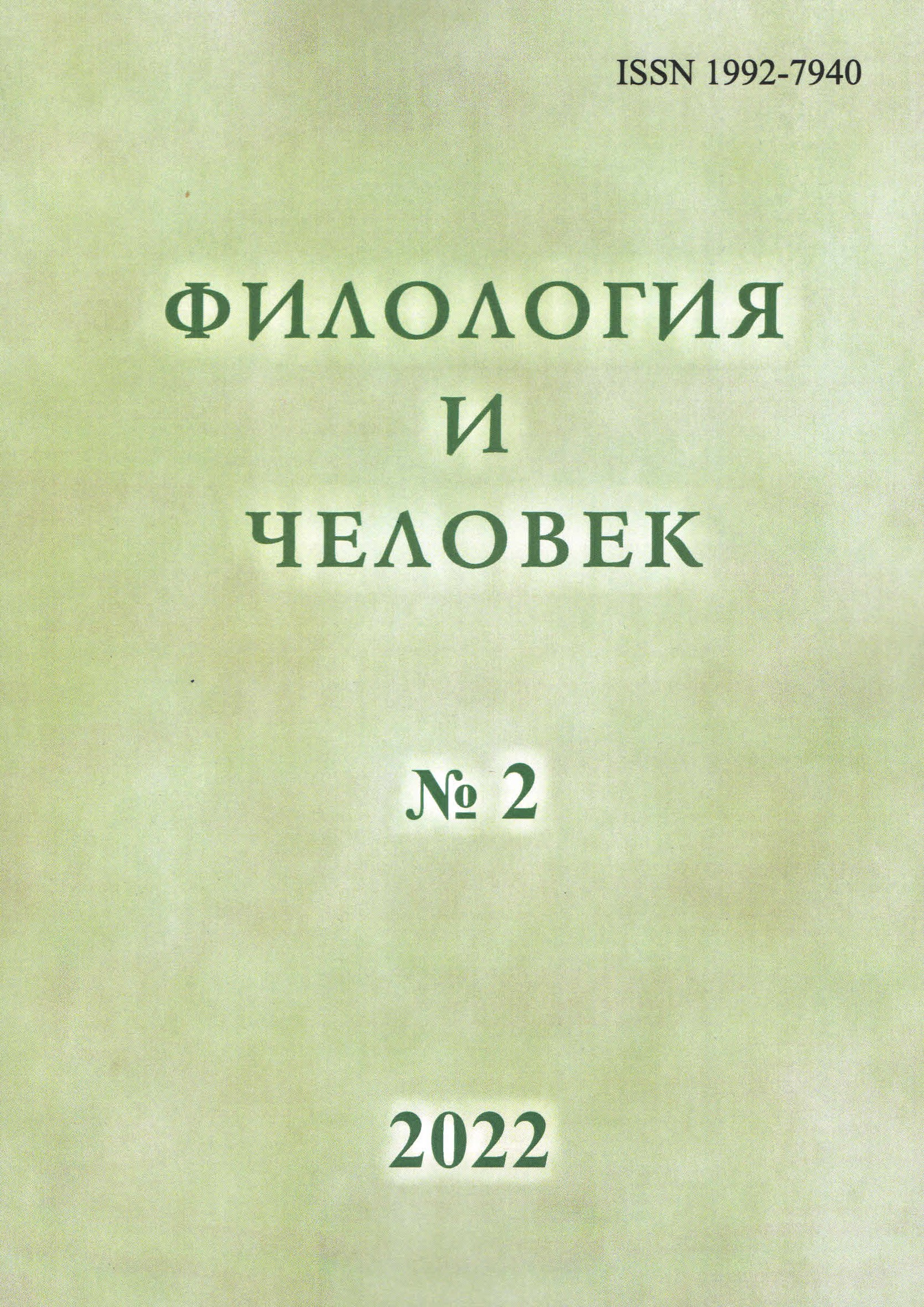Linguistic and Cognitive Essence of Relations in Dialect Worldview of Kuban Region Inhabitants (Based on the Example of Blood Relatives Microfield) (part 2)
Abstract
The second part of the article presents a description of the linguistic and cognitive essence of blood relatives relations in the dialect worldview of Kuban region inhabitants. The study defines the connotation content of the analyzed microfield representatives by stereotyping the family role and position of blood relatives, their interrelations and qualities, which are vital from the Kuban dialect carriers’ point of view. It demonstrates various cognitive potential of microfield constituents which involves some notions having (in peoples’ mind) conjoined meanings and others lacking some. The article demonstrates, that children are a cognitive dominant idea of the Blood Relatives microfield, that leads to their natural ranking into categories, which is manifested in a range of relevant concept-building characteristics. Statements of dialect carriers prove the importance of a traditional role of the family in younger generation upbringing. The research demonstrates, that means оf the described microfield representation, refer to the idea of blood relatives relations, inherent in this ethnical culture, which contains both archaic and modern beliefs of Kuban dialect carriers.
Downloads
Metrics
References
Литература
Борисова О. Г., Костина Л. Ю. Лингвокогнитивная сущность родственных отношений в диалектной картине мира жителей Кубани (на примере микрополя «Кровные родственники») (часть 1) // Филология и человек. 202?. № ?.
Ткаченко П. Кубанские пословицы и поговорки. Краснодар, 2008.
Чалов В. П. Историко-лингвистический очерк фразеологии кубанского казачества, отражающий его историю, военный быт и духовную культуру: дис. … канд. филол. наук. М., 1981.
Список словарей
Андрющенко В. И., Иванова Р. И., Иванова Т. Г., Пелих В. М. Словарь кубанских говоров. Краснодарский край: восточный регион Кубани. Армавир, 2009.
Андрющенко В. И., Иванова Р. И., Иванова Т. Г., Пелих В. М. Фразеологический словарь говоров Кубани. Армавир, 2006.
Борисова О. Г. Опыт словаря кубанских говоров. Краснодар, 2018.
Даль В. И. Толковый словарь живого великорусского языка: В 4 т. М., 1989–1991.
Котелевич А. Н. Скаже, як влипэ: пословицы и поговорки станицы Старотитаровской: Рукопись.
Лексика и фразеология говоров кубанского линейного казачества: материалы к словарю-справочнику. Армавир, 2019.
Русский говор Кубани: Словарь / под ред. Е. П. Шейниной и Е. Ф. Тарасенковой. Краснодар, 1992 // Деп. В ИНИОН РАН. № 47266. (РГК)
Славянские древности: Этнолингвистический словарь: В 5 т. М., 1995–2012.
Словарь русского языка: В 4 т. М., 1957–1961. (МАС)
Фасмер М. Этимологический словарь русского языка: В 4 т. СПб., 1996.
Етимологiчний словник украiньской мови: В 7 т. Киiв, 1982–2012. (ЕСУМ)
Словник украiнськоi мови. Киiв, 1970–1980. (СУМ)
Редакционная коллегия научного журнала «Филология и человек» придерживается принятых международным сообществом принципов публикационной этики, отраженных, в частности, в рекомендациях Комитета по этике научных публикаций (Committee on Publication Ethics (COPE), Кодекс этики научных публикаций), а также учитываeт ценный опыт авторитетных международных журналов и издательств.
Во избежание недобросовестной практики в публикационной деятельности (плагиат, изложение недостоверных сведений и др.), в целях обеспечения высокого качества научных публикаций, признания общественностью полученных автором научных результатов каждый член редакционной коллегии, автор, рецензент, издатель, а также учреждения, участвующие в издательском процессе, обязаны соблюдать этические стандарты, нормы и правила и принимать все разумные меры для предотвращения их нарушений. Соблюдение правил этики научных публикаций всеми участниками этого процесса способствует обеспечению прав авторов на интеллектуальную собственность, повышению качества издания и исключению возможности неправомерного использования авторских материалов в интересах отдельных лиц.





